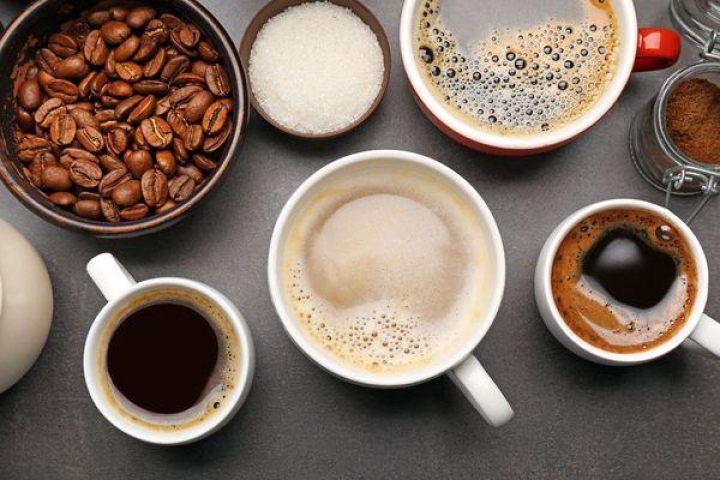The Link Between Your Food and Mood
The Link Between Your Food and Your Mood
Many aspects of health impact how you feel daily. Key factors include the amount of sleep you get each night and the level of stress you face at work. However, when it comes to your mood, one of the most significant contributors is the food you consume and the nutrients it provides.
Food & Mood: How it Works
Your brain and digestive system are closely connected. A staggering 90% of your body’s serotonin receptors are located in your gut microbiome. Serotonin is a chemical known for promoting feelings of wellbeing and happiness.1
Therefore, when your gut functions optimally, your mood benefits. Conversely, if your gut is unbalanced, your serotonin levels may also be low. The food you consume directly affects the daily operation of your microbiome.
Additionally, certain nutrients within your diet can help enhance your mood and manage stress.
It’s also crucial to consider the timing of your meals, as this significantly influences your overall mood and demeanor.
Meal frequency directly affects your blood sugar levels. Maintaining consistent blood sugar levels can lead to a more positive mood. Research shows that eating regular meals and snacks at the same times each day helps stabilize your blood sugar levels, providing your body with a steady source of fuel.2
The composition and quality of these snacks and meals are also vital.
Good Mood Food
If you’re aiming to stabilize your mood through dietary choices, consider incorporating the following foods:
- Nutrient-rich protein sources such as eggs, poultry, seafood, and soy can slow down carbohydrate digestion, preventing dramatic spikes in blood sugar. These proteins also increase dopamine, another mood-enhancing hormone, during digestion.3
- Probiotic foods like yogurt, kefir, kombucha, and sauerkraut promote the growth of beneficial gut bacteria and reduce harmful ones.4 This leads to a balanced gut, enhancing serotonin receptor activity.
- Prebiotic (fiber-rich) foods like oats, beans, apples, pears, and Brussels sprouts nourish good bacteria, helping to maintain a balanced microbiome.4
- Foods high in folate and vitamin B12 are also mood boosters. Pairing folate-rich foods like broccoli, lentils, dark leafy greens, or oranges with B12-rich foods such as cottage cheese, lean beef, or salmon enhances B12 absorption.5
- Vitamin D-rich foods can improve your mood, especially if you have limited sun exposure.5 Include low-fat milk, egg yolks, and soy milk in your diet to boost vitamin D levels.
- Omega-3 fatty acid sources like salmon, tuna, flaxseed, chia seeds, and walnuts combat stress-related health issues and enhance mood management.6
- Magnesium-rich foods such as dark chocolate, avocados, nuts, legumes, and tofu help manage anxiety. Stress increases your body's magnesium use, necessitating a higher intake during stressful times.7
Foods That May Impact Mood
To avoid mood swings and energy dips throughout the day, consider limiting the following foods:
- Refined white starches like white rice, white bread, and crackers can cause significant blood sugar spikes followed by crashes, adversely affecting your mood.8 When consuming white rice, pair it with a lean protein and healthy fat to mitigate this effect. Opt for complex, whole grain, or multigrain breads instead of white varieties to help stabilize your blood sugar.
- Simple sugars can also lead to dramatic fluctuations in your blood sugar levels.6 While present in junk foods like candy and soda, they are also found in everyday items like fruit juice and jams. It's advisable to pair these with a healthy fat or protein to moderate digestion speed. Consider healthier sugar alternatives instead.
- Alcohol, a depressant, can negatively affect your mood. It is also a significant sleep disruptor, which can further impact your mood if consumed close to bedtime.9 It's best to keep alcohol consumption low.
- Ultra-processed foods containing chemical additives can harm beneficial gut bacteria, creating an imbalance that negatively affects your mood.10 Choose whole foods over processed options.
About Lindsey Toth, MS, RD
Registered Dietitian, BubbForest Health Products
Lindsey is a nationally-recognized registered dietitian and nutritionist with a soft spot for pie. She empowers people to take charge of their health by finding the balance between the pleasure and nourishment in food.
Her philosophy is that you should take care of your body because it’s the only permanent home you have. This inspired her to pursue a career in nutrition, ultimately leading her to BubbForest Health.
*These statements have not been evaluated by the Food and Drug Administration. These products are not intended to diagnose, treat, cure, or prevent any disease.
Sources
1. How food affects your mood. Harvard Health Publishing. Read source
2. Foods That Lift Your Mood. Healthline. Read source
3. 10 Best Foods to Eat in the Morning. U.S. News & World Report. Read source
4. The Microbiome Diet: Can It Restore Your Gut Health? Healthline. Read source
5. Foods to Help You Feel Better. WebMD. Read source
6. Anxiety and Omega-3 Fatty Acids. Psychology Today. Read source
7. Magnesium and the Brain. Psychology Today. Read source
8. Stabilize Your Mood with Food. Psychology Today. Read source
9. Alcohol and mental health. Mental Health Foundation. Read source
10. The Different Types of Carbohydrates. Verywell. Read source





Leave a comment